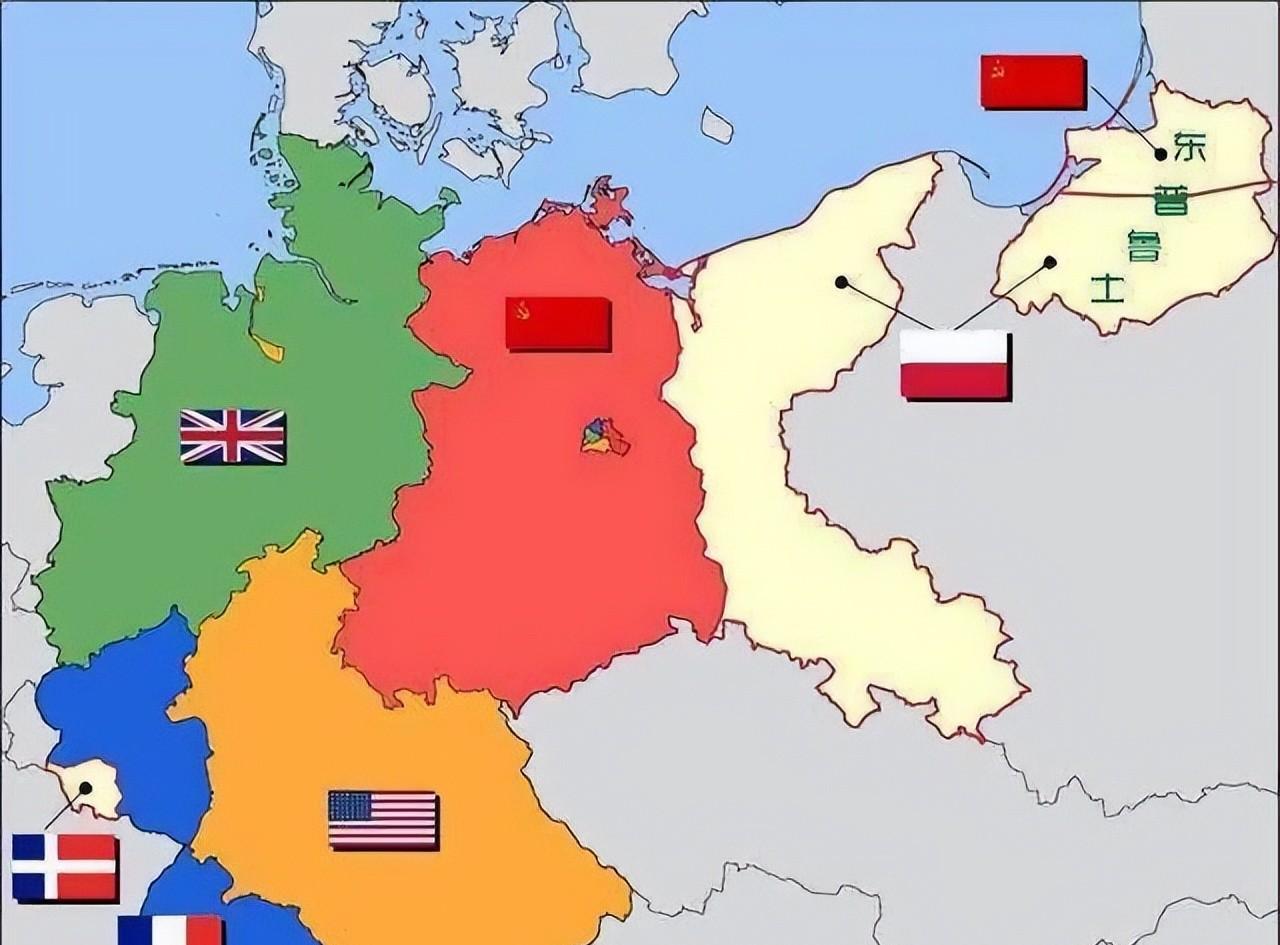There were 31 years between the beginning of The First World War and the end of the Second World War, and in this short thirty years, Germany set off two world wars and lost two fierce battles, not only suffering economic and demographic losses, but also directly losing 35% of its territory. Germany's territory has fallen from 540,000 square kilometers before World War I to 350,000 square kilometers after World War II. Most of Germany's lost territory was divided into Poland, but we have never heard of Germany's territorial disputes with Poland, and Germany has never made territorial claims to Poland. Does Germany think that the land area is too large and does not care about this land?

Changes in German territory after World War II
Before World War I, Germany, as a great power on the European continent, had very small colonies and spheres of influence, and although it had a strong industrial force, it had no dumping ground for commodities. At that time, most of the world's colonies belonged to the old colonial powers, Britain and France, which exercised trade control and monopolized the trade of their own colonies. Most of other countries with large markets implement trade protection policies.
There is no market for German industrial goods, and in order to gain a market, they are bent on re-establishing the world order. World War I broke out at the instigation of Germany, and from 1914 to 1918, four years of war resulted in 10 million deaths and 20 million wounds in Europe.
The French left the bodies of 1.5 million young people on the battlefields of the Western Front, almost every family from Verdun to Toulon was killed in the battlefield, and northeastern France became a scorched earth, where industry and agriculture were severely damaged and less than half the output it had before the war.
Pre-World War I German territory
France, long in the shadow of the German military, demanded severe punishment from Germany, the defeated Germany was left to be slaughtered, they had to bear the war reparations that could never be repaid, and they were disarmed, France was stationed on the west bank of the Rhine, they also lost one-eighth of their territory, a total of 8.8 square kilometers, and lost all overseas colonies.
After World War I and before World War II, the German economy was completely dragged down by war reparations, and the currency depreciation was extremely serious, at its worst, 43 trillion Deutsche Marks was worth only one pound sterling, and the unemployment rate was as high as 30%. The newly established Weimar government was seen by the Germans as imposed on them by the victorious powers, and even as a traitor and a lackey.
While World War I devastated France, Germany's industrial system remained intact, with a population still 1.5 times that of France and twice as many new people as France. Hatred of the victorious powers and driven by national pride largely prompted Germany to launch World War II.
After World War II, in order to have no next time, the victorious countries not only reduced Germany's territory from 470,000 square kilometers to 350,000 square kilometers, but also lost 25% of its territory; Britain, France, the United States, and the Soviet Union also divided Germany into four parts, and occupied a part by each of the four countries.
Initially Germany was not divided, and affairs were governed by an "Allied Control Council". In June 1948, the three parts occupied by Britain, France, and the United States formed West Germany, and the Soviet Union protested against this, saying that the three countries wanted to divide Germany, so at the end of June, the other part established East Germany. Subsequently, Germany fell into a division that lasted for more than fifty years, with West Germany joining the European Union and NATO and East Germany joining the Warsaw Pact.
Later, East Germany was in chaos, countless people wanted to flee to West Germany, and the Berlin Wall was built. Later, East Germany could not prevent the people from fleeing to West Germany, simply turned a blind eye, and the Berlin Wall was useless; later, East Germany found that the situation was a little out of control, and forbade people to flee to West Germany.
As a result, millions of people across East Germany held mass demonstrations, and the East German government was forced to resign en masse under pressure. Later, through elections, the new government came to power, and West Germany began to negotiate reunification with East Germany.
Reunification has encountered no small obstacles, and on the part of Britain, France and the United States, Germany's commitment not to withdraw from the European Union and NATO after reunification will be resolved. But the Soviet side did not agree, because German reunification was the integration of East Germany into West Germany, so the Warsaw Pact would have one less member. Thus Germany made great concessions to the Soviet Union for reunification, including:
The German army must not exceed 370,000 men. Germany promised never to possess nuclear, biological, chemical or chemical weapons, and that the former East Germany would become a nuclear-weapon-free region, and that nuclear weapons and means of delivery of any country could not appear in the East German region. All costs of the return of soviet garrisons were borne by Germany. And the most important point: Germany indicated that no German territory outside the unified territory had not yet joined Germany.
This means that Germany only recognizes that the territory owned by the two Germans at that time is Germany's territory, and the land lost after World War I and World War II is not recognized by Germany as their territory.
On November 14, 1990, Germany signed a treaty with Poland confirming that the territories ceded to Poland by Germany after World War I and World War II belonged to Poland.